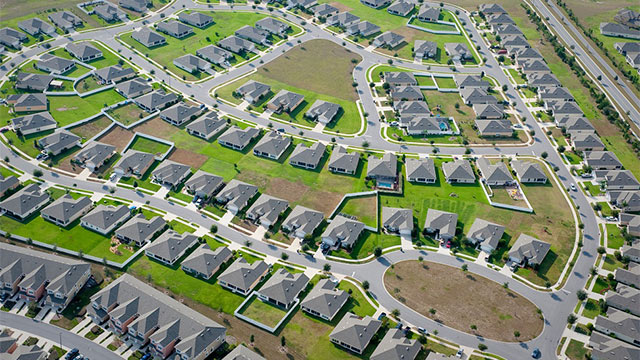FAU Study: South Florida Homes Overvalued by 13 Percent in May
By Paul Owers | 05/24/2021
Tags: Finance | Press-Releases | Real-EstateCategories: Initiatives | Research
Unsettled Insurance Market Could Hurt Housing Demand, Researchers Say

Southeast Florida homes became even more overvalued in May, further fueling concerns of a market correction, according to researchers at Florida Atlantic University and Florida International University.
Properties in Miami-Dade, Broward and Palm Beach counties are selling on average for 13.18 percent higher than their long-term pricing trend. In April, homes sold for 12.54 percent more than they should have, and that was up from 11.52 percent in March.
The continued escalation of home values is troubling, though the degree of overpricing is nowhere near what it was during the worst of the historic housing meltdown more than a decade ago, explained Ken H. Johnson, Ph.D., a real estate economist and associate dean in FAU’s College of Business. Back then, homes were overvalued by about 65 percent.
“An adjustment in housing prices is coming, but probably not tomorrow and not nearly as severe as what we saw before,” Johnson said. “The greatest current threat to prices is a noticeable rise in long-term mortgage rates. But local housing prices will be supported for some time, due mostly to the extreme shortage of inventory in South Florida.”
The latest analysis shows the market is nearing the peak of its current cycle, said Eli Beracha, Ph.D., director of FIU’s Hollo School of Real Estate.
“Trees do not grow to the sky, and neither do housing prices,” Beracha said. “Buyers should take that into consideration when negotiating.”
Another factor for homebuyers to consider is Florida’s worsening property insurance market.
Saying their exposure has soared from fraud, legal fees and other costs, many Florida insurers are canceling policies and sharply increasing rates for remaining customers. In some cases, insurers are demanding homeowners install new roofs to maintain coverage, even though the existing roofs have shown no signs of age.
“If we get to a point where consumers can’t find affordable insurance, it could slow demand for homes, which would have a negative effect on prices,” Johnson said. “What happens with Florida’s insurance market is definitely worth watching.”
In conducting their monthly analysis, Johnson and Beracha review more than 25 years of home prices from Zillow, the online real estate portal. The data includes single-family homes, townhomes, condominiums and co-ops.
Johnson and Beracha also are co-authors of the Beracha, Hardin & Johnson Buy vs. Rent Index. The quarterly housing analysis of 23 key metropolitan areas nationwide determines whether consumers will create wealth faster in buying a home and building equity or renting the same property and reinvesting the money they would have spent on ownership.
-FAU-